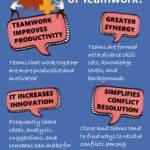
How to Build Your Resilience
The good news is that even if you are not naturally resilient, you can build your resilience and learn to develop a resilient mindset.
Resilience (or resiliency) is our ability to adapt and bounce back when things don’t go as planned. Resilient people don’t wallow or dwell on failures; they acknowledge the situation, learn from their mistakes, and then move forward.
Incorporate the following habits into your daily life:
Learn to relax
When you take care of your mind and body, you’re better able to cope effectively with challenges in your life. Develop a good sleep routine, try out a new exercise or use physical relaxation techniques, like deep breathing or meditation.
Practice thought awareness
Resilient people don’t let negative thoughts derail their efforts. Instead, they consistently practice positive thinking.
This means listening to how you talk to yourself when something goes wrong – if you find yourself making statements that are permanent, pervasive or personalized, correct these thoughts in your mind.
Edit your outlook
Practice cognitive restructuring to change the way that you think about negative situations and bad events.
Learn from your mistakes and failures
Every mistake has the power to teach you something important, so look for the lesson in every situation. Also, make sure that you understand the idea of “post-traumatic growth” – often people find that crisis situations, such as a job loss or the breakdown of a relationship, allow them to re-evaluate their lives and make positive changes.
Choose your response
Remember, we all experience bad days and we all go through our share of crises. But we have a choice in how we respond: we can choose to react with panic and negativity, or we can choose to remain calm and logical to take control and find a solution. Your reaction is always up to you.
Maintain perspective
Resilient people understand that, although a situation or crisis may seem overwhelming in the moment, it may not make that much of an impact over the long term. Try to avoid blowing events out of proportion.
Set yourself some goals
If you don’t already, learn to set SMART, effective personal goals that match your values, and that can help you to learn from your experiences.
Build your self-confidence
Remember, resilient people are confident that they’re going to succeed eventually, despite the setbacks or stresses that they might be facing. This belief in themselves also enables them to take risks: when you develop confidence and a strong sense of self, you have the strength to keep moving forward, and to take the risks you need to get ahead.
Develop strong relationships
People who have strong connections at work are more resistant to stress, and they’re happier in their roles. This also goes for your personal life: the more real friendships you develop, the more resilient you’re going to be, because you have a strong support network to fall back on. So get help when you need it! (Remember that treating people with compassion and empathy is very important here, too.)
Be flexible
Resilient people understand that things change, and that carefully-made plans may, occasionally, need to be amended or scrapped.


